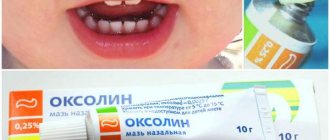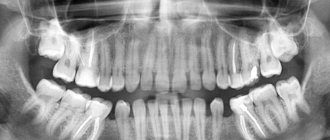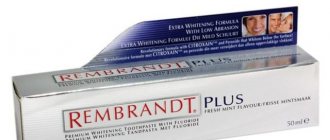When is the disease dangerous?
Stomatitis is contagious if caused by fungi, viruses, or bacteria. However, each type of pathogen has a different risk and modes of transmission of the disease.
Viral
This type of stomatitis is the most contagious to others. It is caused by adenoviruses, enteroviruses, varicella zoster, parainfluenza, and influenza viruses.
Viral stomatitis is easily transmitted in several ways:
- airborne: when coughing, sneezing, talking - if a healthy person is very close to the sick person;
- contact - such stomatitis is contagious when kissing, shaking hands, passing objects from hand to hand if they are exposed to the virus;
- household - when using some items: dishes, hygiene products, toys;
- internal - through the entry of infected blood into the wound: during injections, manicures, shaving.
Viral stomatitis is most contagious to others.
Important! The viral form of pathology is equally dangerous for children and adults.
Characteristic signs of this type of disease:
- bubbles on the tongue, gums, merging into a conglomerate;
- wounds covered with plaque - formed after the opening of blisters;
- pain in the oral cavity;
- general intoxication.
Herpetic
This form is a type of viral. However, in addition to the fact that it is caused by the herpes virus, it has several distinctive features:
- the patient develops characteristic blisters on the lips;
- most often affects children from 1 year to 3 years;
- Once it enters the body, the infection will constantly remain in it, manifesting itself during an exacerbation.
Stomatitis in a child and not only: 6 questions for the dentist
Many people are familiar with “dirty hands disease” or stomatitis firsthand. People often think that stomatitis is a childhood disease that does not require special treatment. Is it so? Is it possible to get stomatitis, or is it really all about “unwashed hands”?
In search of the truth, we turned to Gulnara Elmuradovna Voronenko, a dentist-therapist at the Dentel Fantasy clinic. For reference: Stomatitis is a lesion of the oral mucosa. There are several types of this disease. The most common disease in children is herpetic (viral) stomatitis.
The onset of the disease is very similar to rotavirus infection. The child refuses to eat, feels weak, drowsy, and has a fever. After two or three days, inflammation appears on the gums, a white coating on the tongue, ulcers, and bad breath.
Can stomatitis be diagnosed only by a dentist?
No, when examining a child, a pediatrician can identify this disease and prescribe treatment. At his discretion, the pediatrician may send the patient for a consultation with a dentist or prescribe a general blood test and other laboratory tests.
Do only children get stomatitis?
No, stomatitis is not only a childhood disease. Although most cases occur in children aged one to three years. It’s just that in adults the disease often occurs in a mild form.
Is stomatitis a contagious disease? I heard stories from mothers about how their child fell ill with stomatitis after visiting a children's entertainment center. Is it possible?
Yes, this is possible. Stomatitis can be transmitted through household contact and airborne droplets. For example, a healthy baby took a toy that a child with stomatitis had just played with. It is also possible to become infected through a kiss, for example, from a mother with herpes to a child. So, first of all, do not forget about the basic rules of hygiene.
They say that stomatitis does not need to be treated, it will go away on its own. Is it so?
Sometimes it happens. If stomatitis does not cause discomfort to the child and there are few rashes, then we can say that this is a mild form of stomatitis, and the body is able to cope with it on its own.
deti.mail.ru
Are children with weakened immune systems most likely to get sick?
Yes. When a child’s body is weakened, the likelihood of getting sick is high. It is impossible to completely protect a child from this infection: 90% of the adult population are carriers of the herpes virus.
Therefore, it would not be amiss to talk about strengthening the immune system through hardening, physical education, proper rest, and healthy food.
What should the treatment be?
First, you need to see a doctor. Secondly, in order to relieve pain and alleviate the child’s condition, it is recommended to lubricate the oral cavity with teething preparations.
Antiseptic drugs are prescribed directly for treatment. If the child is still very small, then you can make baths and compresses.
The sequence of treatment for stomatitis is as follows:
- We clean the oral cavity with a cotton swab dipped in an antiseptic solution;
- Apply antiviral ointment;
- We use wound healing drugs.
Patients are advised to drink plenty of fluids, eat soft foods, and use separate utensils. Recovery is observed on days 10-14. If parents discover symptoms of stomatitis in a child who has become ill for the first time at an early stage (on the first or second day of the disease), it is worth starting to use antiviral drugs. This will ease the course of the disease and protect against severe disease in the future. Be healthy!
Dear readers! Have you ever encountered stomatitis? What was your treatment like? We are waiting for your comments!
Quick contact with the editors Even more useful tips for parents on our Instagram. Join us!
- Share
- Share
- Share
Author: Elena Berezkina
Tags: All about health, All about children
In what cases is stomatitis not dangerous?
Fungal stomatitis is transmitted mainly through household contact.
Several forms of pathology are not dangerous to others. However, this is a relative statement. Whether stomatitis is contagious or not, especially in children, depends on the individual characteristics of the body and the origin of the disease.
Aphthous
It is believed that the aphthous variety is not dangerous. It is characterized by the appearance of round yellowish-gray erosions (aphthae) on the cheeks, palate, and gums. It is provoked by injuries, lack of vitamins and minerals, disorders of the gastrointestinal tract, and stress.
However, whether aphthous stomatitis is contagious or not is considered individually in each case. Sometimes it is caused by viruses. In this case, it is easily transmitted by talking, exhaling, coughing, sneezing.
Important! If the pathology is caused by an infection, the patient experiences redness of the mucous membranes of the mouth, throat, and tonsils.
This type is also dangerous for infants under six months, even if it was initially caused by injuries. Since children have not yet developed local oral immunity, pathogenic microorganisms can be transmitted through other contact methods. It is better to limit communication, sterilize and separate toys, cutlery, and hygiene items.
Other non-dangerous types of pathology
In addition to infectious forms of the disease, there are 3 more, caused by internal disturbances in the functioning of the body:
- traumatic;
- allergic;
- resulting from chemotherapy and radiation therapy.
When there is a risk that a child or adult has contracted an infection, it is better to take safety precautions from the beginning.
These forms are safe for others. But there is also an exception here. Whether this type of stomatitis is contagious depends on the transmission mechanism. Thus, when a patient comes into direct contact with a healthy person, when germs enter an open wound from the affected area, transmission is possible.
Doctors' recommendations
As you know, the third DTP vaccination (at the age of six months) coincides with an important period in the life of a baby - the eruption of the first tooth. During this period, the baby’s parents should be attentive to his health, because the process of dental formation can affect the state of the immune system.
Pediatricians give several recommendations regarding the correct behavior of parents who decide to vaccinate their baby in parallel with teething:
- DTP should be given if the baby tooth has already appeared above the gum, and is not hiding in the thickness of the soft tissues, preparing for eruption;
- You should not delay vaccination if your baby’s gums are very itchy or there is excessive salivation;
- the fact of teething during the natural course of the process is not a reason for medical withdrawal from DPT;
- DTP vaccination is not administered if the child is diagnosed with fever, catarrhal manifestations or symptoms of dyspepsia;
- if the baby develops pathological symptoms associated with complications of the teething process, vaccination should be postponed for several days until the baby has completely recovered;
- Before vaccination, the child must be examined by a pediatrician to assess his general condition and determine the presence of complications from baby teeth that are erupting.
How to protect yourself?
Regardless of whether stomatitis is contagious or not, in parallel with the treatment of the patient, others should adhere to the following measures:
- use different cutlery and hygiene items;
- exclude contacts, especially between children;
- wear a gauze bandage;
- avoid damage to the oral mucosa;
- balance nutrition;
- include vitamin and mineral complexes in the diet.
It is worth considering that the disease lasts from 5 to 10 days. However, it has an incubation period. It lasts up to 3 days in infants up to six months, and in children over 6 months and adults – up to a week.
When there is a risk that a child or adult has contracted an infection, it is better to take safety precautions from the beginning.
For example, the possibility of defeat arises if someone in kindergarten, school, university or at work already suffers from stomatitis. Whether stomatitis is contagious or safe depends on the specific type of pathology and its origin. The most dangerous are viral forms of the disease. For children, the greatest risk remains with the bacterial and fungal type. And the traumatic, allergic, aphthous types are harmless, with the exception of some special cases.
Pathogens of stomatitis
Ulcers with aphthous stomatitis can be large
Depending on what is the causative agent of the disease, stomatitis is divided into several types:
- Herpetic.
- Candida.
- Aphthous.
- Allergic.
- Contact.
In most cases, infants develop a candidal form of the disease, which is also called thrush. The causative agent of thrush is a special type of fungus – Candida.
Important: Candida fungi can live in the human body: on the skin, in the intestines, in the mouth of completely healthy people.
The herpes form of stomatitis occurs against the background of the herpes virus and most often affects children from one year to 3 years old.
Allergic and contact forms of the disease can occur as a result of allergic reactions to certain foods or chemicals.
The causes of aphthous stomatitis have not yet been fully studied, but there are suggestions that this form of the disease occurs due to:
- genetic predisposition,
- emotional stress,
- lack of vitamins,
- overwork,
- allergic reaction of the body to food.
Which doctor treats stomatitis in children
Stomatitis in children is much more severe than in adults. Therefore, in the case of stomatitis, the attending physician must approach each child individually. When choosing a specialist, it is recommended to carefully approach this issue.
Parents wonder which doctor treats stomatitis, and turn to the dentist. If your baby's ulcers have been present for a long time or there are relapses, a visit to the pediatric dentist will be helpful. Only he is able to provide proper assistance in such a situation, prescribe competent treatment, which will take into account all the features of the development of the disease and your baby’s body, for example, recommend the necessary ointments.
Ointments for stomatitis have been used and recommended by doctors for quite a long time. Pharmacies have a large selection of ointments for all ages and at different prices; you just have to pay attention to the contraindications.
My mouth is full of trouble: stomatitis. Live healthy! 08/06/2018
An initial diagnosis of stomatitis can be made by a pediatrician. In the usual case, he will help you understand the factors that led to the disease and prescribe a course, after which the likelihood of relapses will be minimized.
In addition, your general practitioner may refer you and your child to the following specialists:
- An allergist-immunologist, a doctor who treats stomatitis, will be able to determine the level of immunity in the baby, and, if he detects violations, will prescribe the appropriate treatment. It is highly recommended to visit it, since there is a possibility that the cause of the disease will be a deficiency of immunity.
- Hematologist. Children are constantly exposed to danger in the form of various serious diseases - for example, leukemia and other negative blood tumors. As a result, the immune system may experience problems with the proper formation of new cells, as a result of which the body directs entire groups of such immune formations to the area of the oral mucosa.
- Infectious disease specialist. If the source of the disease is chronic, then a relapse cannot be ruled out. Therefore, the source of the disease certainly needs prompt treatment.
The dentist is also obliged to examine not just the mucous membrane, but also the teeth. The cause of dental stomatitis, for example, can be caries, inflammation, etc. Do not forget that in children, treatment of stomatitis takes longer and more thoroughly than in adults. It is for this reason that during treatment it is necessary to constantly assess the child’s condition and, if necessary, adjust the course of treatment. Stomatitis, which has already acquired a severe form, requires an urgent visit to the doctor, since the factor that led to the disease may be very serious; treating stomatitis on your own may not help.
Types of stomatitis
Before prescribing treatment, the doctor will examine you and take the necessary tests. This way it will become clear what the signs of the disease are and what group of diseases stomatitis belongs to. What is a group of diseases?
- Herpetic stomatitis
- Candida
- Aphthous
- Bacterial
Let's consider each case separately.
Herpetic stomatitis - also viral
If the disease has pronounced symptoms, the doctor will prescribe antibiotics in the form of an ointment - Acyclovir or Zovirax. And also Imudon tablets, they need to be dissolved 8 times a day, if the disease is not very bothering you, then in principle four tablets a day will be enough.
People with severe manifestations of the disease should be hospitalized and placed in a box. This is because the disease, pronounced and difficult to treat, can be contagious. Since bacteria do not die, but rather progress, the hospital will select the necessary treatment method.
Candida
In this case, the doctor will prescribe drugs such as pimafucin and clotrimazole. Also Imudon tablets. If the disease is too advanced, and this happens when a person does not value his health and does not care about it, the doctor will prescribe additional antifungal injections. The doctor himself will prescribe the medications.
Aphthous
Aphthous stomatitis is a chronic disease that worries a person throughout his life. That is, the disease becomes chronic and manifests itself frequently.
The doctor will prescribe medications such as Dexamethasone, which is a solution for rinsing the mouth. And Clobetasol ointment 0.05%. If none of the indicated remedies helps, then intensive treatment begins and Prednisolone or Azathioprine tablets are used for this. Well, the doctor prescribes injections in addition.
Bacterial
This disease has such causes as: biting the cheek or lip. Bacteria enters the wound and stomatitis begins. Treatment in principle for this manifestation of the disease is simple. The doctor will prescribe Orasept or Tantum Verde - these are sprays. They need to treat the oral mucosa every 3 hours. In addition, he will also prescribe Hexoral or Salvia tablets.
Caring for a child with stomatitis
The participation of parents in treatment and proper care of the child is not just important - they are decisive. With stomatitis, it is necessary to strictly follow the treatment plan, which is often very labor-intensive, so the result depends on parental care and control. The oral cavity is a kind of epicenter of pain, so it is not surprising that the child will be capricious a lot. Therefore, it is important for parents to be patient and persistent.
Nutritional Features
Most mothers and fathers are concerned about the question of how to feed a child with stomatitis. Firstly, it is necessary to eat only soft, warm and mushy foods, for example in the form of purees. The main thing is that the food is high in calories and positive, because the child’s immunity is already weakened. After eating, be sure to rinse your mouth so as not to provoke the development of stomatitis and not to add any additional infection. If a child is ill, the diet should include the exclusion of spicy, sour, sweet foods and citrus fruits.
Pain relief and care
For stomatitis in children, pain relief is necessary. It is carried out with the help of various medications in order to avoid food refusal and poor sleep. In addition, for stomatitis in children, proper treatment of the oral cavity is very important. A doctor should recommend what to treat and rinse a child’s mouth with.










